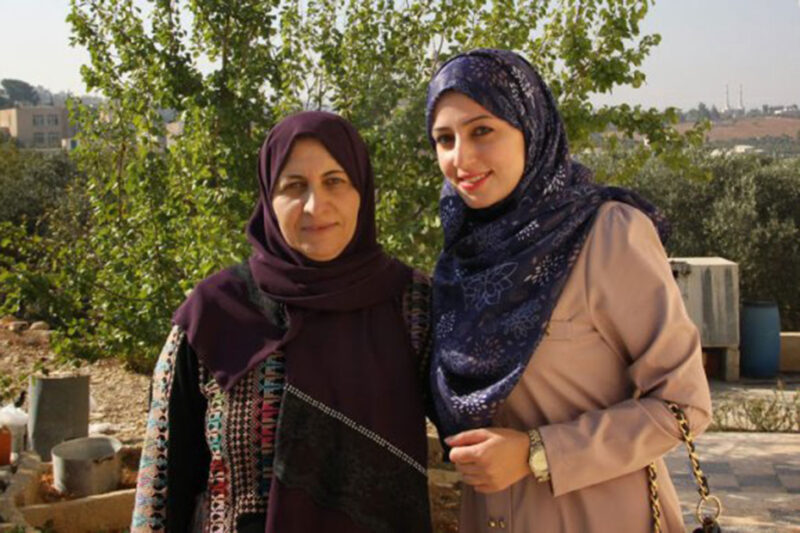By Johanna Mitscherlich, Regional Emergency Communications Officer, CARE International in Jordan
This week, 1.4 billion Muslims around the world celebrated Eid al-Adha, which marks the end of the annual Hajj pilgrimage to Mecca. During the celebration, people traditionally sacrifice an animal and the meat is shared with friends, family, and also with the poor and the hungry.
In Irbid in northern Jordan, people like Kawkab Ababneh have opened their doors to some of the Syrian refugees who now call Irbid home. Last year, when a Syrian refugee family moved in next door to Kawkab, she immediately knocked on their door and offered help.
‘I still remember them saying that they were not staying for long. They said they were planning to go home the next day or maybe the day after – that they planned to go back to Dar’aa. For the first year they were living out of their suitcase and didn’t enrol the children in school; they were always on call, prepared to go home at a moment’s notice.’
Kawkab encouraged them to enrol the children and when the local principal refused to accept the children because they had no school certificates – they were buried under rubble – Kawkab went straight to his office and managed to change his mind. She accompanies the family to public authorities and supports them with cans of water and kitchen equipment. But most importantly, she has welcomed them and showed them that they have a friend and a family far from home.
This week, Kawkab celebrates her second Eid feast with the family. A few months ago, they got some furniture. The suitcase is still packed, always ready for their return and every time Kawkab visits them, the conversation always turns to Syria, to damaged homes, burnt shops, broken dreams and lost futures.
‘Their lives consist only of memories; it’s the hope of going back, of seeing their friends and family and their home again that keeps them going,’ she said.
This holiday has been no different. The family talked about Syria, about their traditions, how they baked bread on the morning of Eid, decorated their house and met relatives and neighbours. Today, they can only communicate via telephone with those who are still in Syria and alive, but the news is rarely good. ‘Eid Kibir’, as this feast is also called however, is supposed to be filled with ‘joy and happiness’. The mother therefore bought small hats and bouncing balls for the children so they would at least experience some normalcy.
‘Kawkab’s friendship and support means a lot to us. She helps us through these difficult times,’ said Samiha, one of 21 Syrian refugees who live next door.
It is people like Kawkab who prevent this refugee crisis in Jordan from becoming an even bigger humanitarian disaster.
Despite being affected by higher rent and prices, and overcrowded classrooms and hospitals with the influx of Syrian refugees, most Jordanians are still doing all they can to support the more than half a million Syrian refugees living in their country – already home to six million people and hundreds of thousands of Iraqi and Palestinian refugees.
‘Where else would they go, all these children, mothers and fathers?’ asks Kawkab. ‘I cannot imagine what it must feel like to have to leave everything behind and flee my country. If I can ease this pain slightly then that makes me a happier woman.’
Perhaps Kawkab’s hospitality also has something to do with her name which means ‘star’ in Arabic. This star certainly outshines the generosity of many.
CARE runs an urban refugee centre in Irbid (in addition to centres in Amman and other urban areas), helping families with emergency cash assistance, case management and referral to access further health care and social support.
You can help Syrian refugees in desperate need of assistance. Donate to CARE’s Syrian Refugee Crisis Appeal today.

